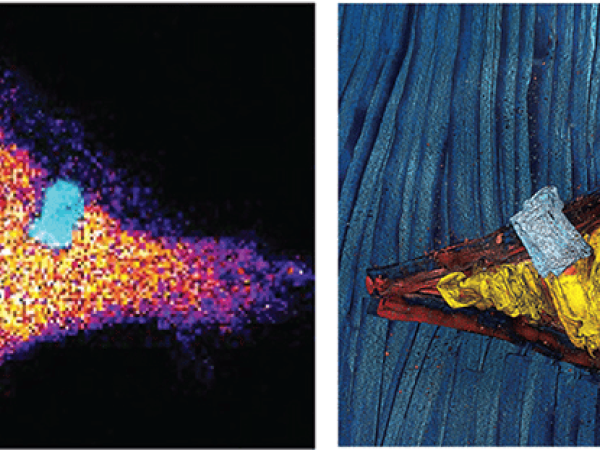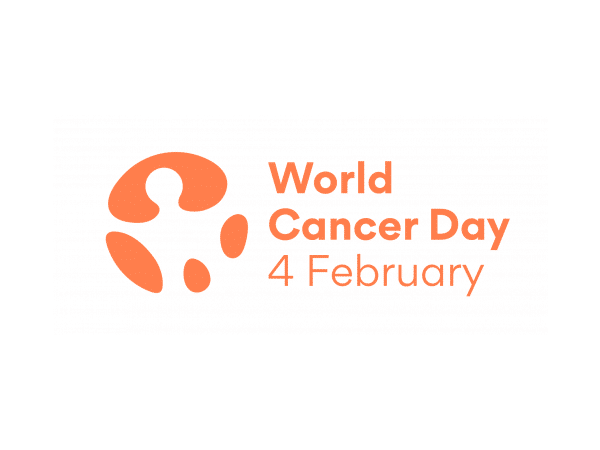AACR Initiatives Bolster Diversity, Take Aim at Disparities
Disparities in health care are among the most significant forms of inequality and injustice. In the United States, racial and ethnic minorities experience numerous disparities due to factors including biological differences and inadequate access to health care. Black Americans are all too familiar with these disparities, as they experience higher overall cancer mortality rates compared to all other racial or ethnic groups.
These stark health inequities have drawn renewed attention and substantial concern in the face of the ongoing COVID-19 pandemic, which has also disproportionately impacted communities of color. For many years, the American Association for Cancer Research (AACR) has worked to end disparities in the cancer burden, and to make sure that progress against cancer benefits all people equally.
Eliminating disparities requires consistent effort on numerous fronts, including the development and sustenance of a diverse scientific workforce. Here’s a look at a few AACR publications and programs that are guiding the cancer research community toward equity.
AACR DEBUTS NEW REPORT ON CANCER HEALTH DISPARITIES
In September 2020, the AACR released its inaugural Cancer Disparities Progress Report. The report was developed to raise awareness of the enormous toll cancer exacts on racial and ethnic minorities and other underserved populations.
Black Americans have had the highest overall cancer death rate of any racial or ethnic group in the United States for more than four decades. Other proven disparities affecting the Black population:
- Although Black women and white women are diagnosed with breast cancer at similar rates, Black women are more likely to die of the disease.
- Black women are more likely than white women to die of triple-negative breast cancer, an aggressive subtype. A study presented at the AACR Virtual Annual Meeting II in 2020 suggested that clinical features and access to health care may be responsible for this disparity.
- Prostate cancer is more prevalent among Black men than white men.
- Racial and ethnic minorities are severely underrepresented in clinical trials. This has limited our understanding of how cancer develops in racial and ethnic minorities.
Sadly, health disparities have also affected Black populations during the COVID-19 pandemic. Data from the Centers for Disease Control and Prevention have shown that while Black and white Americans contract COVID-19 at roughly equal rates, Blacks are nearly three times more likely to be hospitalized and nearly twice as likely to die of the virus.
The persistent nature of disparities in health affirms the goals set forth in the Cancer Disparities Progress Report.
“We will continue to actively promote high-quality, impactful science and policies that benefit everyone equally, and at the same time dedicate our efforts to the elimination of cancer health disparities and the inclusion and recognition of the contributions of minority investigators in cancer research,” the report stated. “Furthermore, the AACR is committed to working with policymakers to ensure that cancer health disparities research becomes a national priority.”
LONGTIME DISPARITIES CONFERENCE HIGHLIGHTS IMPORTANT RESEARCH
While the Cancer Disparities Progress Report was new in 2020, the AACR has showcased research on disparities for many years. In October, we held the 13th Conference on the Science of Cancer Health Disparities in Racial/Ethnic Minorities and the Medically Underserved.
Like nearly all scientific conferences since the COVID-19 pandemic began, the disparities conference took place in a virtual format. It also occurred in the midst of several incidents of violence against Black Americans.
“This year’s conference takes place among calls for significant change to address discrimination throughout American society,” said John D. Carpten, PhD, of the University of Southern California Keck School of Medicine, who was chair of the conference and of the Steering Committee for the Cancer Disparities Progress Report. “The AACR, whose core values include diversity and inclusion, has been a key ally in our fight to end disparities.”
The conference provided a forum for studies and discussions spanning a wide range of topics, from workforce development to biological underpinnings of disparities to minority representation in clinical trials.
AACR MINORITIES IN CANCER RESEARCH SUPPORTS PROFESSIONAL NEEDS OF AACR MEMBERS
While the events of 2020 increased awareness of inequity in the cancer research community, the problem isn’t new. In 2000, the AACR created Minorities in Cancer Research (MICR), a membership group that would support the professional needs of racially and ethnically diverse cancer researchers, while also advancing the AACR’s mission to prevent and cure cancer.
The past 20 years have brought progress: Today, about 11 percent of the AACR’s 48,000 members are racial or ethnic minorities, up from less than 2 percent when MICR was founded. MICR itself has more than 5,000 members and a robust roster of programs, such as scientific sessions and professional development activities during AACR meetings; scientific leadership networks that connect minority scientists and those focused on cancer health disparities research; AACR Cancer Disparities Think Tanks; and programs that provide a platform for advocacy for funding and legislation to support health equity and cancer disparities research.
But there is much work still to be done. As noted in the September statement, the AACR is at work on many concrete initiatives to further strengthen and expand diversity in the cancer research community.
For example, the AACR Board of Directors has established a Task Force on Eliminating Racial Inequities in Cancer Research. Among other goals, this task force will work to implement the recommendations made during the Panel Discussion on Racism and Racial Inequities in Cancer Research at the AACR Annual Meeting II, and to further support the work of MICR. The task force will be chaired by John M. Carethers, MD, and Melissa B. Davis, PhD.
To learn more about Minorities in Cancer Research, see our website and this video, created before the coronavirus pandemic shifted our meetings to a virtual format. The group has continued to grow and thrive since these interviews took place.
JOURNALS PROVIDE PLATFORM FOR DISCUSSION
In the past year, AACR journals have published several pieces examining race and equity in the cancer research community. In August, Cancer Discovery published a paper by Donita C. Brady, PhD, of the University of Pennsylvania and Ashani T. Weeraratna, PhD, of Johns Hopkins University, suggesting concrete steps cancer institutions can take to improve diversity and racial equity among students, faculty, and patients. This month, Cancer Discovery published an article on Black in Cancer, a group founded in 2020 to amplify Black voices in the cancer workforce. Authors and cofounders Henry J. Henderson III, PhD, and Sigourney Bell detailed their efforts to help build a strong pipeline of Black doctors and researchers, ultimately diversifying the workforce and improving health outcomes. And a recent paper published in Blood Cancer Discovery laid out recommendations for increasing the representation of Blacks in clinical trials for multiple myeloma. The recommendations, detailed by lead author Kenneth C. Anderson, MD, of the Dana-Farber Cancer Institute, were developed at a workshop convened by the AACR and the U.S. Food and Drug Administration.
GRANTS HELP DIVERSIFY THE SCIENTIFIC WORKFORCE
In January, the AACR announced a new career development award established in honor of U.S. Rep. John Lewis, a civil rights icon and 17-term Congressman from Georgia. Lewis worked tirelessly throughout his career to advance the civil rights of all Americans, even as he battled pancreatic cancer. The grant named for him is available to members of racial or ethnic groups that are underrepresented in the pancreatic cancer workforce.
The AACR has also launched the Breast Cancer Research Foundation-AACR Career Development Awards to Promote Diversity and Inclusion. These two-year, $150,000 grants—which were established in 2020 and will be awarded beginning in 2021—were launched to support breast cancer investigators from diverse backgrounds that are underrepresented in cancer science-related research and to foster their career advancement.



